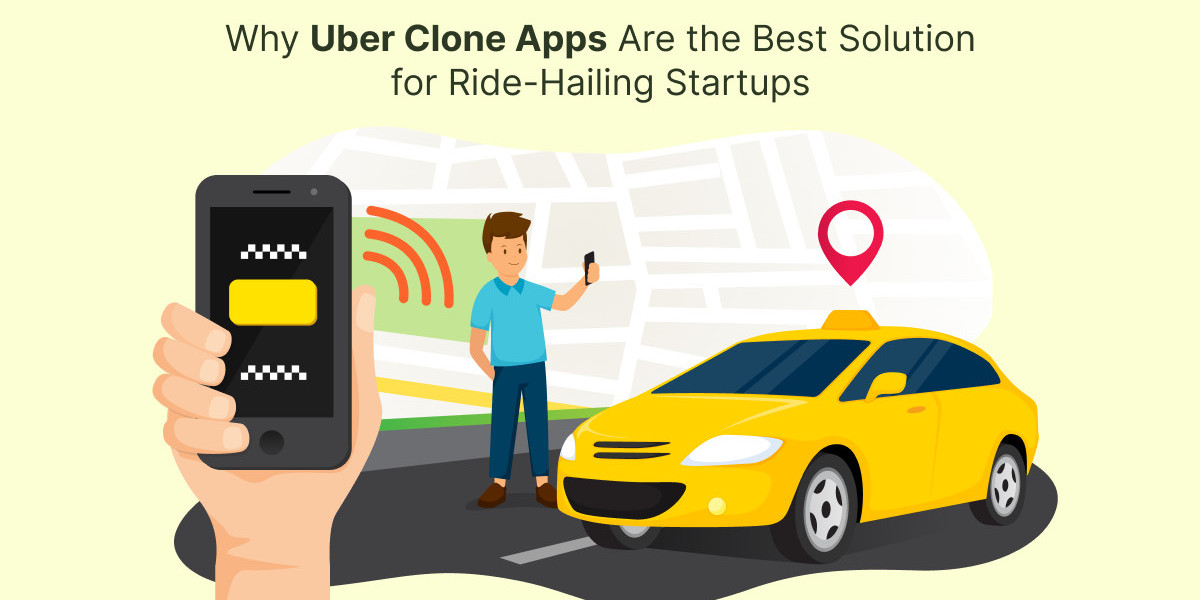Starting a ride-hailing startup in 2025 is an ambitious but highly rewarding venture. With established giants like Uber and Lyft commanding the global spotlight, new players entering the market must bring more than just a novel idea—they need speed, operational agility, and a scalable tech infrastructure to compete effectively. One of the most practical ways to achieve this is by leveraging an Uber clone app. These ready-made platforms offer a cost-efficient, fully customizable foundation that allows startups to launch quickly and adapt to local market needs.
In this guide, we’ll explore why an Uber clone app is the ideal launchpad for today’s ambitious ride-hailing startups, and how it empowers entrepreneurs to move faster, spend smarter, and build mobility solutions tailored to their regions.
What Is an Uber Clone App?
An Uber clone app is a ready-made software solution that replicates the core functionality of the Uber platform. It typically includes a rider app, driver app, and an admin dashboard, all of which can be customized to match your business model, branding, and regional requirements.
Instead of building a ride-hailing system from scratch—which can take over a year and cost a fortune—you can start with a proven framework and make modifications based on your goals. It’s faster, more affordable, and better suited for startups aiming to launch quickly without compromising on quality or scalability.
Why Time-to-Market Matters in Ride-Hailing
When launching a digital product, speed is everything—especially in a competitive space like transportation. Markets evolve quickly, and user needs shift rapidly. Being first or early in your region can help you build brand awareness, sign up drivers, and acquire loyal customers before the competition catches up.
Uber clone apps accelerate your time-to-market because they’re already equipped with essential features like:
- Real-time GPS tracking
- Automated fare calculations
- Driver-rider chat and call options
- In-app payments and wallet integrations
- Ratings and review systems
With these functionalities already built, you can launch in as little as 4–6 weeks instead of the typical 6–12 months required for custom development.
The Cost Advantage of Clone App Development
Startup budgets are often tight. One of the biggest benefits of using an Uber clone app is its affordability. Since the core software has already been developed and tested, the majority of your expenses go toward customization, branding, and deployment.
Typical clone app development costs can range from:
- $10,000 to $15,000 for a basic version
- $20,000 to $30,000 for a fully customized, multi-platform solution
- $30,000+ for enterprise-scale platforms with advanced features
Compared to the six-figure investment required for full custom development, this is a major saving—without sacrificing quality or scalability.
Customizability and Feature Flexibility
Contrary to the name, a clone app doesn’t mean your product is an exact copy of Uber. In fact, one of the strongest selling points of modern Uber clone solutions is that they’re highly customizable.
Here’s what you can modify:
- Design: Logos, color themes, fonts, and overall layout
- Features: Add or remove options like ride scheduling, SOS alerts, loyalty programs, or EV ride types
- Payment Gateways: Integrate local options like UPI, Stripe, Paytm, or Apple Pay
- Language and Currency: Build for global expansion with multi-language and multi-currency support
- Ride Types: Include cars, bikes, auto-rickshaws, or even boats depending on your region
This customization ensures your app is not just another clone—but a branded solution that’s tailored to your users’ needs.
Proven UX and Scalable Tech Stack
Uber clone apps follow user experience patterns that are already familiar to the public. This reduces the learning curve for new users and increases conversion rates.
In addition, most clone platforms are built using modern, scalable technologies such as:
- Node.js, React, or Flutter for cross-platform support
- Cloud hosting with AWS, Google Cloud, or Azure for scalability
- Real-time databases for faster matching and tracking
- Microservice architecture for better performance and easy updates
Whether you're serving one city or several countries, your app can grow with your business.
Ideal for Localized and Niche Markets
Every city, region, or community has its own transportation habits. An Uber clone app enables you to serve hyperlocal needs quickly. Whether it’s adding regional language support or incorporating payment gateways that work offline, these platforms allow you to focus on niche opportunities that big players often overlook.
Examples include:
- Rural mobility services with offline booking support
- Women-only ride options with safety features
- EV-based fleets in smart cities
- School or corporate ride-sharing models
This level of adaptability allows startups to dominate niche markets and scale strategically.
Read More: How to Successfully Launch Your Ride-Hailing Business with an Uber Clone App
Built-In Admin Control and Analytics
Uber clone apps come with powerful admin panels that let you control and monitor everything in one place. As a startup founder, you gain access to:
- Live trip data and driver performance reports
- Earnings summaries and payout controls
- Service area management
- Promo and discount code management
- Dispute and complaint resolution workflows
Having all this data at your fingertips helps you optimize operations, spot trends, and make data-driven decisions from day one.
Ongoing Support and Upgrades
A reliable clone app provider doesn’t just hand over the code—they provide post-launch services like:
- Bug fixing and technical support
- New feature development
- App updates for Android and iOS platforms
- Server and performance monitoring
This means you’re not alone after your app goes live. A trusted app development company becomes a long-term partner in your growth journey.
Frequently Asked Questions
Can I add new features later on?
Yes. Most Uber clone apps are modular, meaning you can roll out new services and updates as your business grows.
Will the app work in multiple cities or countries?
Absolutely. Geo-fencing, multi-currency support, and regional settings make it easy to scale globally.
How do I onboard drivers to my new app?
Many clone platforms include tools for digital driver registration, verification, training videos, and earnings dashboards.
Can I rebrand the app completely?
Yes. You can apply your own logos, designs, and workflows so the app reflects your startup’s identity.
Is it secure for online payments and data privacy?
Clone apps use encrypted payment systems and secure databases, and can be upgraded to meet local data protection regulations.
Conclusion
Launching a ride-hailing startup doesn’t have to mean starting from zero. Uber clone apps provide a powerful, affordable, and customizable launchpad for entrepreneurs who want to move fast and compete confidently. With the right strategy and a reliable app development company, you can create a branded, localized ride-hailing solution that meets modern user expectations and scales as you grow.



